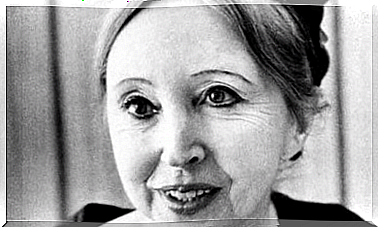Wait For The Partner To Change For You, Something Common In The Dependent Relationship

Waiting for the partner to change is the eternal hope of many failed relationships. That is to tell us every day that ” today will be different and act as it should” or “sooner or later he will realize and come to his senses.” However, time passes, the change does not come and the suffering increases because possibly the other does not see any problem in their attitude or behavior.
This is a subject that is frequently appreciated in psychological practice and in couples therapy. A good part of the members of a relationship feel that many of their needs are not being taken care of, that the other is neglecting them. Some even wait for the other to (magically) realize it and correct it. Many even hope that this difficult and even problematic character will fade over time.
“He will do it for me , we tell ourselves. She loves me and will do whatever it takes for this relationship ”, we assume with firm certainty. However, time passes and the desired change does not always happen. Not in all cases. Because as William James pointed out, the human personality is made of plaster and does not change so easily. Only the time and the blows seem to trace some variations.
However, this does not prevent us from making adequate progress at times. In fact, if we didn’t believe in it, psychological intervention would be meaningless. We analyze it below.

Waiting for the partner to change for you, the problem of dependent relationships
You can wait for the partner to change for you for a month, two or five months. However, when this doesn’t happen, on average, you take the evidence and make a decision. Now, there are cases in which that waiting and that longing becomes chronic and even blind. Often, we see affective bonds in which physical or emotional abuse appears, those in which one of the members continues to wait for the other to change.
Emotional dependence defines a pattern of beliefs, emotions and behaviors in which there is always an obsessive and persistent need for attention and affection. Jorge Castelló-Blasco (2005) even proposes the proposal to call this reality as disorder of the personality due to emotional needs. In these cases, the subordination to the other and the fear of rupture make the intolerable to be tolerated and the hope of a change always survives.
Likewise, it is common for other dynamics to occur that further fuel this belief. We analyze them.
They promise you that they will change, that it will be the last time (and you believe it)
Lies, slights, blackmail, humiliation, bad language and suffering … A good part of dependent relationships suffer from these types of dynamics. Thus, at a given moment, regret for what was provoked by one of the members may arise. They are those situations in which one says to the other that “this is the last time, I promise you that I will change.”
In these cases, waiting for the partner to change for you is one more form of suffering. It may be that for a week or two, indeed, everything is harmony. But sooner or later it happens, those harmful behaviors reappear.
Love addiction and distorted focus
Dependent relationships are nurtured and solidified by addictive and troubled love. That type of attachment built between two parts of anxiety, of a suffocating bond in which we need the other even if they hurt us, is something compulsive, blind and highly destructive.
This mental and emotional focus distorts all thinking. Waiting for the partner to change for you is something habitual, constituting almost like that longed-for hope that rarely materializes.

Situations in which change does occur
If we ask ourselves if a person can change at any given moment, the answer is yes. Certain dynamics, thinking styles and behaviors can be changed. Studies such as those carried out at the University of Illinois, for example, remind us that in psychological practice, changes are an obvious reality. Now, it takes will and the awareness of knowing what it is that one should correct oneself.
When a person realizes that his way of functioning isolates him and puts him at risk, for example, maintaining that relationship or not can promote changes if he wants to. Likewise, figures such as John Gottman, clinical psychologist, researcher and one of the greatest experts in couple relationships, remind us of the conditions for this to happen. We analyze it.
Keys to change
- It is not about waiting for the partner to change for you. It is about working together for that relationship. Therefore, it is important to bear in mind that we cannot expect drastic changes in the personality of the other. It is not good to expect that they are what they are not, that we demand a radical change in their way of being.
- We must recognize to the other what we like about them, their strengths and enriching. Likewise, it is advisable to be very specific in what aspects they harm us, those problem areas that are destroying the bond.
- John Gottman point out that one of the horsemen in destroying a relationship is criticism and anger. Therefore, when exposing to our partner which points of their behavior cause us pain or suffering, we must avoid unloading our anger on the other or falling into unconstructive criticism. It would basically be about pointing out what is happening, what needs are being neglected and how this situation could be solved.
To conclude, it is true that in many cases it is difficult to wait for someone to change for us. The key would basically be to hope that they change for themselves and the relationship itself. Change for the better and win in happiness, well-being and psychological satisfaction is the best starting point.









